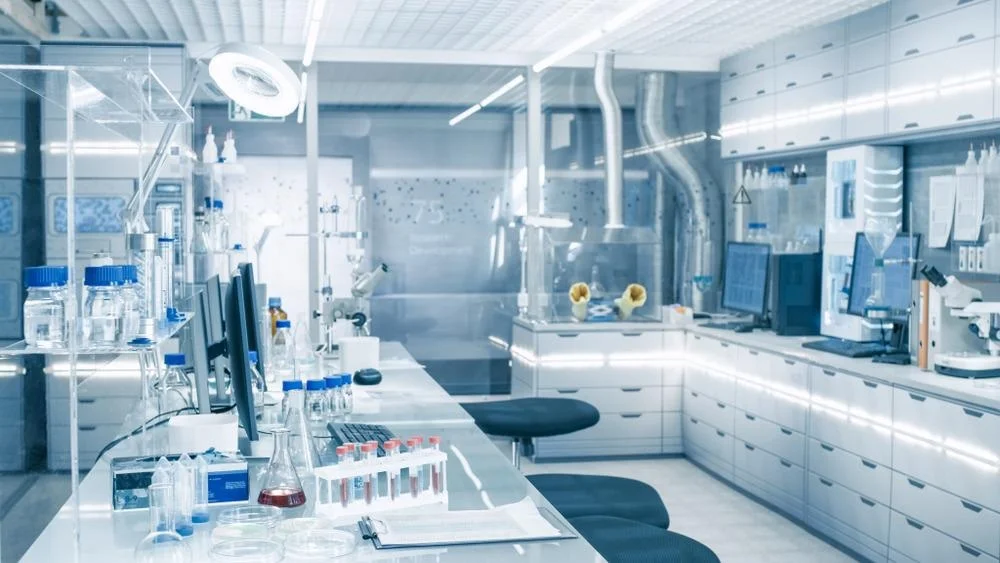Transformer Oil Organic Degradation Compound Testing
The integrity of transformer oil is crucial to the longevity and performance of electrical transformers. The presence of organic degradation compounds in transformer oil can indicate potential issues that could lead to equipment failure or reduced lifespan. Our comprehensive testing service focuses on identifying these organic compounds, ensuring that transformers are maintained at optimal operational conditions.
Organic compounds in transformer oils can originate from a variety of sources including thermal decomposition, partial discharge, and contamination during the manufacturing process. These compounds can significantly affect the insulating properties and breakdown voltage of the oil, leading to increased risk of dielectric failure. Our testing service is designed to detect these compounds early on, allowing for timely corrective actions.
The first step in our testing process involves the collection and preparation of transformer oil samples. The specimens are carefully extracted from transformers under controlled conditions to ensure that they accurately reflect the current state of the oil within the equipment. Once collected, the samples undergo a rigorous analytical procedure using advanced chromatographic techniques such as Gas Chromatography-Mass Spectrometry (GC-MS) and High Performance Liquid Chromatography (HPLC).
Our testing methodology adheres to international standards including ASTM D6834 and ISO 17952, ensuring that our results are consistent with global best practices. The analytical process allows us to identify a wide range of organic compounds present in the oil, providing detailed data on their concentration levels.
After analysis, we generate a comprehensive report detailing the findings. This report includes not only the identification and quantification of various organic degradation products but also recommendations for corrective actions based on our findings. Our reports are designed to be easily understandable by quality managers, compliance officers, R&D engineers, and procurement personnel, ensuring that they can take immediate steps towards maintaining transformer health.
The importance of this testing cannot be overstated. Early detection of organic degradation compounds allows for proactive maintenance strategies, minimizing downtime and avoiding costly repairs or replacements. By addressing potential issues before they escalate into critical failures, our service contributes significantly to the overall reliability and safety of electrical infrastructure.
In addition to the technical aspects of our testing process, we also provide training sessions for personnel responsible for interpreting test results. These workshops cover topics such as understanding chromatographic outputs, interpreting spectral data, and applying findings in real-world scenarios. Our aim is to empower stakeholders with the knowledge necessary to make informed decisions regarding transformer maintenance.
Our service extends beyond just detection; it also includes a robust quality control system ensuring that every sample undergoes thorough examination following stringent protocols. This ensures accuracy and reliability of our results, which are essential for making sound business decisions related to equipment upkeep and replacement schedules.
Scope and Methodology
The scope of this testing service encompasses a wide range of organic compounds commonly found in transformer oil. Our methodology includes several key steps aimed at achieving precise results:
- Sample Collection: Samples are taken from various locations within transformers to ensure representativeness.
- Preparation: Prepared samples undergo preliminary treatment before being analyzed using advanced chromatographic techniques.
- Analytical Techniques: GC-MS and HPLC are employed to identify and quantify organic compounds present in the oil.
- Data Interpretation: Results are interpreted according to international standards, providing actionable insights for stakeholders.
The methodology ensures that all tests meet high-quality standards set by recognized authorities such as ASTM D6834 and ISO 17952. By adhering strictly to these guidelines, we guarantee accurate and reliable results every time.
Why Choose This Test
Selecting our transformer oil organic degradation compound testing service offers several advantages over other options available in the market:
- Precision: Utilizing cutting-edge technology like GC-MS and HPLC ensures accurate identification of even trace amounts of harmful compounds.
- Compliance: Our tests are aligned with international standards, ensuring compliance with regulatory requirements worldwide.
- Proactive Maintenance: Early detection allows for proactive maintenance plans, preventing costly breakdowns and unplanned outages.
- Expertise: Leveraging our expertise in chemical analysis provides valuable insights into the condition of your transformers.
- Training: Comprehensive training sessions help personnel understand how to use test results effectively for decision-making purposes.
- Reliability: Our stringent quality control measures ensure consistent and reliable testing every time.
- Cost-Effective: By preventing major issues early on, this service proves cost-effective in the long run by reducing maintenance costs and downtime.
These benefits make our service an invaluable asset for any organization dealing with critical electrical infrastructure.
International Acceptance and Recognition
The importance of international acceptance cannot be overstated when it comes to transformer oil organic degradation compound testing. Our service has been recognized by numerous global bodies, ensuring that our results are widely accepted across different regions:
- ASTM D6834: This standard provides detailed procedures for the analysis of aromatic hydrocarbons in transformer oils.
- ISO 17952: This international standard sets forth requirements and test methods for determining the acidity and viscosity of insulating liquids used in electrical equipment.
- IEC TC37 SC37A: The International Electrotechnical Commission's Technical Committee 37 Subcommittee 37A deals with oil-filled power transformers, reactors, bushings, and their accessories. Our tests align closely with their recommendations.
By adhering to these standards, we ensure that our testing service is not only reliable but also meets the highest global quality benchmarks. This recognition adds credibility to our reports, making them trusted documents in regulatory submissions and internal audits alike.





